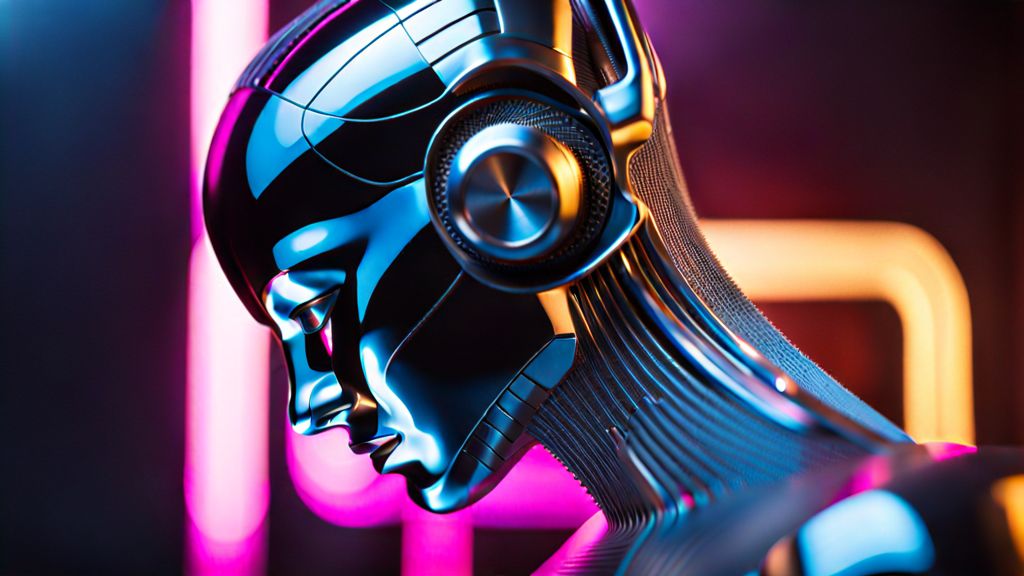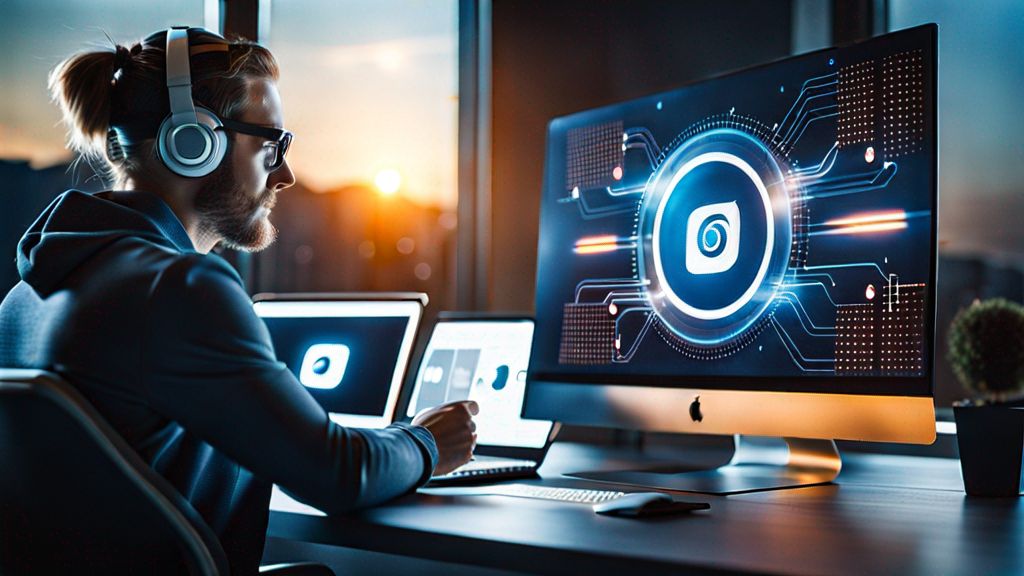In the fast-paced world of digitization, the paradigm of copyright, traditionally limited to human creations, is shifting its focus towards machine-generated content. A new conversation has begun in the legal and technological arena, stirring the stagnant waters of copyright laws and regulations, bringing forth a multitude of intriguing questions regarding AI and copyright. This world now seeks to understand the potential implications of a machine holding content copyright.
As the landscape of technology evolves, so must the legal implications, and as AI continues to create content, the familiar gray areas of copyright become more profound. The world of SEO and content generation is rapidly transforming, and amidst these changes, the role of SEO writing is becoming increasingly significant. Within this backdrop of legal ground morphing to accommodate technological advancements, the challenge of SEO content writing gains new dimensions.
Content optimization, defined traditionally as tailoring content to human likes, preferences, and searches, is now being stretched to encompass machine-generated content as well. The role of a content creator has now become that of a balancer and a bridge, finding harmony between man-made and machine-generated content, and ensuring equitable visibility of both, thus leading us to a new era of SEO copywriting.
But what would it mean for an AI to hold a copyright? Can a machine, devoid of the human cognitive faculty, truly create something original, or rather, is it just reshuffling what exists? These fundamental philosophical questions, though intriguing, are leading the way to practical legal implications.
The development of AI technology has revolutionized the way content is created and distributed, underscoring the need for content optimization for AI-generated material. Our current copyright laws, designed to protect human innovation and creativity, face a significant test in accommodating AI, a tool that can mimic human creativity and has arguably given birth to a new form of content – the machine-generated content.
While the legal community grapples with these changes, SEO services are also re-inventing themselves to deal with the new SEO writing landscape, where AI is not just a tool, but an active participant. We find ourselves at the juncture of technological breakthrough and legal conundrum, resulting in a necessary integration of content optimization strategies and policy-making, all wrapped within the broader context of SEO copywriting.
This intellectual minefield of technology and law, of AI and copyright, is a fascinating world to explore. As we delve deeper into this realm, further implications of AI-generated content will unfold. Existing realities will get reshaped, and new norms will be defined, all pointing towards a future where perhaps AI could be viewed as a legitimate, independent creator and therefore a potential holder of content copyright.
Exploring the Legal Implications of Machine-Generated Content
The rapidly transforming state of SEO content features an integral participant: AI. Artificial intelligence is swiftly becoming not just a tool for content creators but a content creator itself. In the arena of SEO writing, the array of possibilities AI brings is staggering, but equally intriguing are the legal implications of this AI-generated content.
So, how exactly are copyright laws being challenged by the rise of machine-generated content? Let’s dive into this complex question.
The Copyright Quandary
Historically, copyright protections have revolved around human creativity and innovation. However, the surge in AI-created content has significantly blurred these lines. Generating content isn’t exclusive to humans anymore, and SEO content writing dealing with machine-generated pieces has become increasingly prominent. This has thrust us into uncharted waters regarding copyright laws.
We are confronted with fundamental philosophical debates: Can a machine be credited with originality? Is it truly creating something new or merely reshuffling existing data? While captivating, these questions hold substantial legal weight.
Reinventing the SEO Landscape
As the legal community grapples with this burgeoning issue, SEO services are also adapting to the new reality. The profound implications pose real challenges for everyone involved in content optimization. Additionally, while the prevalent use of AI in SEO writing is undeniable, its status as a potential, independent copyright holder is still debatable.
The world of SEO copywriting is evolving, with professionals having to balance between human and AI-generated content, ensuring equitable visibility for both. This critical recalibration of roles is leading us to a new era of content optimization, which now encompasses machine-generated pieces. SEO automation, once a mere concept, is now very much a reality, challenging traditional SEO norms and practices.
Norms Re-defined, Realities Re-shaped
The intellectual minefield of AI, copyright, technology, and law is a thrilling realm to navigate. As we delve deeper into this topic, further implications of AI-generated content are sure to unfurl. An evolving legal framework that accommodates the novel concept of machine-generated content copyright is much needed. Effective SEO content guidelines that adequately address AI’s involvement are urgently required as well.
This potent amalgamation of technology and legality is re-shaping existing realities and re-defining new norms. It’s all pointing towards a future where AI might very well be recognized as a legitimate, independent creator and hence, a potential content copyright holder.
Revisiting the Framework of Copyright: The Dawn of AI-Originated Content
As we continue to explore the intertwined facets of AI, copyright law, and SEO writing, it is evident that we are standing at the precipice of an exciting disruption in the realm of content creation. With the phenomenon of AI-generated content, we are witnessing a colossal shift in the norms, traditional concepts, and established boundaries of content optimization, thereby reshaping existing realities.
The rise of machine-generated content places us within a transformative Venn diagram, where technology, creativity, and law converge. As SEO content writing becomes more complex in this dynamic landscape of AI dominance, we plunge deeper into the intricate and vital questions of originality, creation, and innovation – concepts historically perceived to be inherently human.
The Symphony of Man and Machine: A Content Creator’s New Role
A modern content creator, now more than ever, must play the role of a skilled conductor directing an unconventional orchestra of human creativity and AI-generated content. Their task involves maintaining the balance between organically developed ideas and machine-generated creativity, ensuring SEO copywriting remains a harmonious symphony of thoughts and intelligence, both human and artificial.
Making Sense of the Unfamiliar: The Legal Ramifications of AI
If we move past the technicality of SEO content and delve into the legal implications, we can see the current copyright laws performing a delicate balancing act to account for this new player. However, this just isn’t an issue about updating existing laws but rather reinterpreting them, understanding them from an entirely different perspective to encompass machine-generated content. It’s about reshaping the mould of copyright to fit a new, unfamiliar shape: AI.
Thus, the weighty challenge before the legal community extends beyond merely the reflection and Eeinterpretation of pre-existing copyright laws in light of AI technology. The larger question left to ponder is whether the legal system can adequately respond to the minefield of issues surrounding an AI becoming a potential copyright holder of its generated content and if such a scenario is even feasible.
The Path Ahead: Navigating the Future of SEO and AI
As we venture forth into this yet unexplored territory, it is crucial to adapt and improvise. SEO content writing needs to harmoniously integrate AI contributions while maintaining its unique human touch. As SEO copywriters, we need to navigate this new reality, balancing the scales between human and machine in content creation and addressing the legal implications that arise in the process.
Whether AI will come to be recognized as an independent content copyright holder is a future reality yet to be ascertained. However, it is a fascinating direction to venture into, nonetheless. As we stand on this precipice of change, we can only look forward to seeing the tumultuous and exciting journey of SEO, content, and AI.




